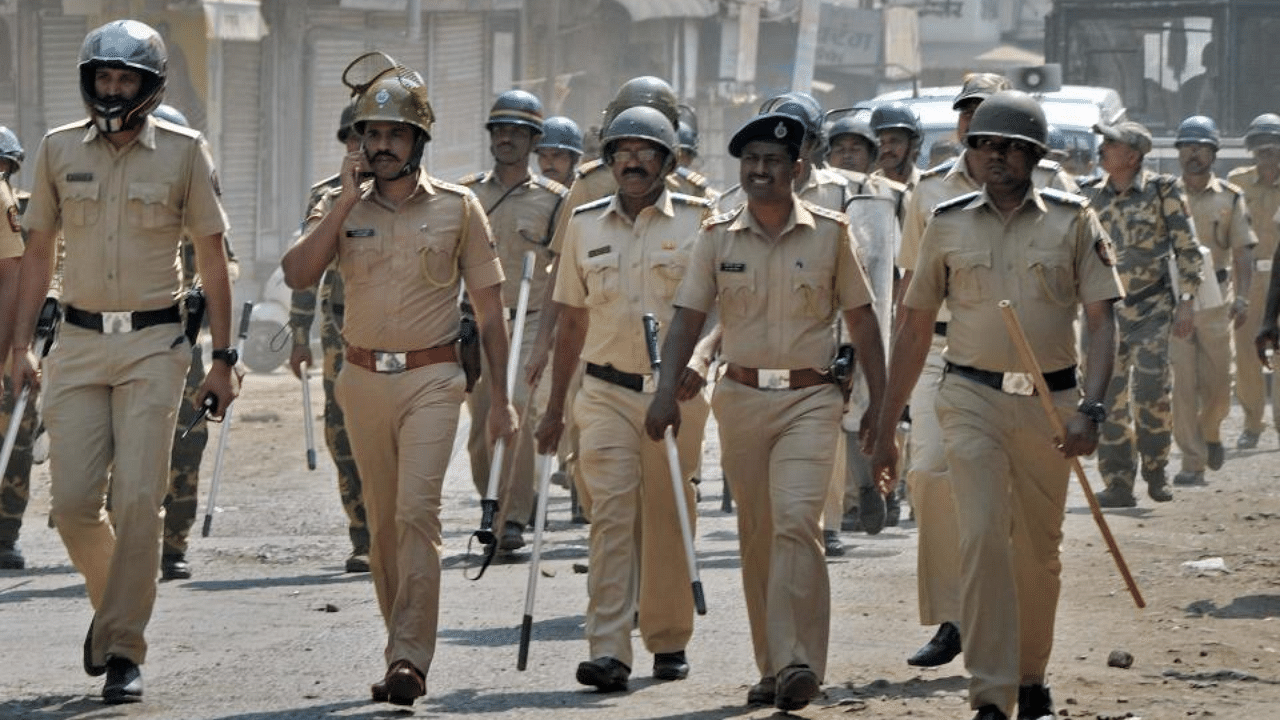
The Maharashtra police-politician squabble is now being legally processed by the Central Bureau of Investigation (CBI) under the orders of the Bombay High Court. Hence this analysis is not on that specific issue but on a larger subject of police-politician relations affecting the general public.
While one should summarily reject the notion that an elected politician has no role to play in overseeing the working of police, it is also true that propriety demands that politicians should not interfere in the inner working of the police department unless it is in connection with correcting any grave misdemeanour in the department or for guidance in its working towards the greater public good.
The second report of the Dharma Vira National Police Commission (1979) had observed that the manner in which political control has been exercised over police in India through ‘threats of transfer and suspension’ has led to ‘gross abuses, resulting in erosion of rule of law and loss of police credibility as a professional organisation’. The Commission recommended that the superintendence of the state government over police should be limited to ensure that police performance was in strict accordance with the law by laying down broad policies. “There should, however, be no instructions in regard to actual operations in the field.”
This policy was more or less strictly followed by successive governments in Maharashtra where I served the state police till 1976. I remember an occasion in 1974 when the late V P Naik, the then chief minister, discussed with the Commissioner of Police, in my presence, complaints from a powerful Congress MLA against a police inspector of an important police station in Central Bombay. I was the head of the Bombay Special Branch, in which capacity I used to meet the CM every day. The CM “suggested” to the commissioner that the police inspector may be transferred. The commissioner, who had already checked the MLA’s complaints and found the charges to be not correct, opposed the transfer. The CM did not press the matter any further. The inspector was not transferred.
Things changed drastically a decade later due to various reasons. In 1987, the Maharashtra government brought in a legislation to amend Section 4 of the Bombay Police Act 1951 to bring “control, direction and supervision” of the police directly under the State Home Department. Section 6 detailing powers of the police chief was made so weak that he/she had to depend upon the Home Department even for regular work. In other words, the Director-General of Police (DGP) was made a mere figurehead.
A comparison with, say, Tamil Nadu, is interesting. Under Section 4 of the Tamil Nadu District Police Act 1859, duly amended, vests the “superintendence” of police with the state government, but confers “administration of the police” to the DGP through Section 5.
As a result, the Maharashtra Home Department started controlling even police inspectors’ postings, which run into thousands. Till the 1980s, the DGP had the power to transfer all inspectors within the state, the Deputy Inspectors General (DIGs) within the “range” and the Superintendent of Police (SP) within the district. The DGP had to seek the permission of the state government only for transfers of Deputy Superintendents of Police (DySP) outside the districts as they were considered "senior" appointments.
The result of this was the total weakening of functional independence of police officers at different levels. This was due to police officers manning police stations looking to politicians, who had the ‘right kind of approach’ to the Home Department to get them choice postings. This trend affected even Indian Police Service (IPS) officers, some of whom managed to continue in comfortable urban postings without doing a single rural or tribal district. As a result, discipline within the force collapsed, affecting police accountability towards the public.
During 2008-2009, I was a part of the two-member 'High-Level Enquiry Committee' appointed by the Government of Maharashtra to enquire into the police response to the 26/11 Mumbai terror attacks. We found that some inspector-level officers in Mumbai were taking certain decisions without even consulting their superior officers because of their political clout. As a result, senior officers came to know of these decisions much later, affecting police efficacy.
The public is the worst victim. The arrogance of certain Station House Officers (SHO) in the rank of inspectors in urban centres has no bounds. A few years ago, a close relative had to seek police help for the verification of her passport. She was treated well by the lower staff who completed the procedure speedily. When she expressed her happiness with their work, they requested her to convey it personally to the boss and SHO. She entered the room after knocking on the inspector’s door. The reception she faced was quite unexpected. He shouted at her for entering his room and asked her to get out.
A former home minister in Maharashtra started a practice in 2011 of personally perusing the case papers of crimes recorded in Mumbai city. This was after journalist Jyotirmoy Dey’s sensational murder on June 11, 2011, by a gangster. Thirteen zonal deputy commissioners and their investigating staff had to be present at the Secretariat by turn daily and wait for hours for the minister’s review of crime detection, thereby wasting hundreds of man-hours instead of being available to the public.
This is the basic malady affecting the police not only in Maharashtra but also in other states. Although we compare ourselves with 'Scotland Yard' we have never followed the London Metropolitan Police’s motto of 'Policing by Consent' laid down by Sir Robert Peel in 1829. The general motivation and intent of 'Policing by Consent' is that the British Police derived its authority from the Crown, the law and the consent and cooperation of people. This cannot be achieved unless the police force is given functional independence and the politician engages in only a broadly supervisory role.
(The writer is a former Special Secretary, Cabinet Secretariat)